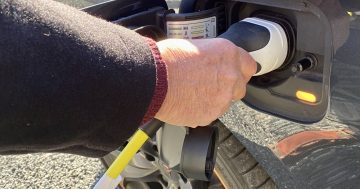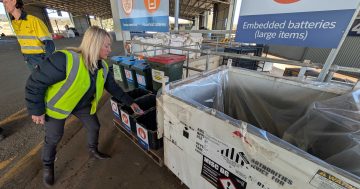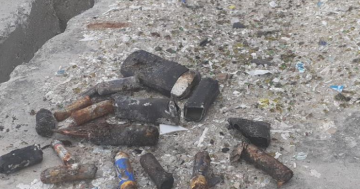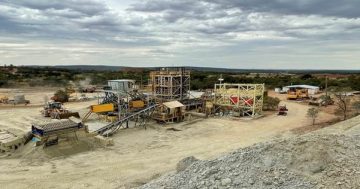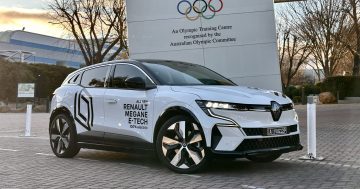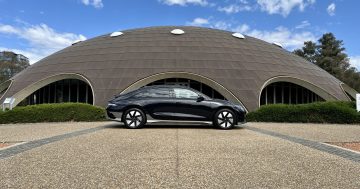Tina Casey* says electric vehicle battery recycling would give automakers a chance to clean up their energy storage act.
 New research on the impacts of lead-acid car battery recycling paints a dark picture of the impacts of illegal operations and loose regulations.
New research on the impacts of lead-acid car battery recycling paints a dark picture of the impacts of illegal operations and loose regulations.
This legacy of public health and environmental impacts provides automakers with all the more reason to transition into electric vehicles (EVs) and new energy storage technology.
Though EV battery recycling will not be impact-free, a new venture in Nigeria provides a pathway for a more sustainable automotive industry.
The impacts of lead-acid battery recycling
In terms of raw numbers, the auto industry generally gets high marks for lead-acid car battery recycling.
Battery manufacturers cite a figure of 99 per cent recyclable materials in a typical lead-acid battery, and an impressive recycling rate of 99.1 per cent.
However, the numbers mask outsized impacts related to improper and poorly regulated recycling operations.
In a Yale 360 Environment profile last November, contributing writer Fred Pearce catalogued contaminated breast milk, child mortality and widespread contamination in communities ranging from Kenya and Senegal to California.
“Tens of thousands of backyard battery breakers and smelting enterprises around the world are seeking to cash in, collecting an abundant supply of used batteries to turn into new product.
“With little regulation, the result is often lethal,” Pearce wrote.
Pearce also takes note of bad actors among larger recycling enterprises, which can leave behind a legacy of widespread contamination even after they are finally shuttered.
Of particular concern to U.S. automakers is the prospect of ever-tightening regulations on domestic battery recycling.
All else being equal, that will lead to an increase in the export of spent batteries to nations where rules for handling lead-acid batteries are less strict.
Right now the prospect does not look much better for EV battery recycling.
Out of the lead-acid battery recycling frying pan, into the Li-ion fire
As the electric vehicle market grows, the auto industry has a golden opportunity to leave lead-acid technology behind.
In addition to all-electric start-ups like Tesla, legacy automakers like GM and Ford are planning to electrify their entire fleets.
Lithium-ion (Li-ion) batteries are the alternative of choice, though other new types of batteries are in development.
Hydrogen fuel cells are another option for vehicle electrification.
However, new energy storage technology does not erase the recycling problem.
It only creates new challenges with EV battery recycling that must be tackled head-on, and quickly.
The problem is that a recycling pathway for Li-ion car batteries has yet to scale up.
Until recent years, Li-ion batteries have been used mainly in handheld devices and other small electronics.
At that scale, the payback for recycling has been minimal, and the global recycling reflects that.
As of 2018, for example, the Li-ion recycling rate was two and three per cent in Australia.
Scaling up the recycling stream for millions of car batteries will be an enormous challenge.
In 2019, reporter Mitch Jacoby of C&N described the chicken-and-egg dilemma.
“Because the Li-ion battery industry lacks a clear path to large-scale economical recycling, battery researchers and manufacturers have traditionally not focused on improving recyclability.
“Instead, they have worked to lower costs and increase battery longevity and charge capacity,” Jacoby wrote.
“And because researchers have made only modest progress improving recyclability, relatively few Li-ion batteries end up being recycled.”
A large-scale solution for recycling EV batteries
Stricter national standards on a global level can help tamp down on improper or illegal Li-ion battery recycling operations.
However, a more holistic solution for safe and effective EV battery recycling would involve both automakers and battery manufacturers.
In that regard, automakers can take a cue from the solar industry.
It is increasingly common to find solar panels marketed with energy storage in the form of Li-ion batteries, and the leading solar firm Lumos recently set a high bar for the industry.
Lumos bills itself as the first leading firm to offer Li-ion batteries in a standard home solar package, and it has recognised the need to scale up EV battery recycling.
According to Lumos, the demand for batteries in Africa was just two gigawatts (GW) in 2015.
Demand could grow to 15 GW by 2030 under the current state of electrification on the continent.
As electricity access increases, battery demand will also rise, leading to the potential of a 30-GW demand for batteries by 2030.
In 2019, Lumos partnered with Carnegie Mellon University Africa and the Korean battery materials manufacturer and recycler Taisen Company to help the Nigerian firm Hinckley Recycling enter the Global LEAP Award for E-Waste Recycling.
The award is supported by USAID, UK Aid, and the public-private electrification initiative Power Africa, with the aim of managing waste from the off-grid solar industry in sub-Saharan Africa last year.
With the assist from its partners, Hinckley won the 2020 LEAP Award, and now Lumos has followed up by forming a recycling partnership with the firm.
Under the partnership, Hinckley will recycle waste batteries from Lumos at its recycling center in in Ojota, which has an annual capacity of 20,000 metric tons of e-waste.
The need for holistic EV battery recycling
Lumos already has a vast footprint in Nigeria and it is expanding into other countries, starting with Côte d’Ivoire.
The partnership with Hinckley provides Lumos with a significant sustainability and social responsibility marketing edge.
Hinckley won the 2020 LEAP Award on the basis of its plans for taking on a major challenge for the e-waste recycling industry, which is the competition that legitimate, responsible recyclers face from the “informal” recycling network.
In addition to competing for materials recovery, informal recyclers also disrupt the supply chain in the growing field of second-life batteries.
Hinckley is assessing the informal e-waste recycling in Lagos, with the aim of establishing relationships within the informal recycling ecosystem rather than trying to drive small-scale recyclers out of business.
That includes health and safety training, and the potential for health insurance plans as well.
The company has also been researching safer, scalable methods for informal recyclers, including a manual process being implemented in China.
In addition, Hinckley’s ongoing work with Carnegie Mellon involves developing a battery test lab aimed at second-life battery use.
Firms like Lumos and Hinckley are already establishing a three-legged roadmap for automakers to follow, and all three legs are needed for success: a strong Government platform, partnerships with corporate and academic stakeholders, and meaningful engagement with the informal recycling network that sustains jobs as well as public and environmental health.
*Tina Casey writes frequently for TriplePundit and other websites, with a focus on military, Government and corporate sustainability, clean tech research and emerging energy technologies.
This article first appeared at triplepundit.com.


